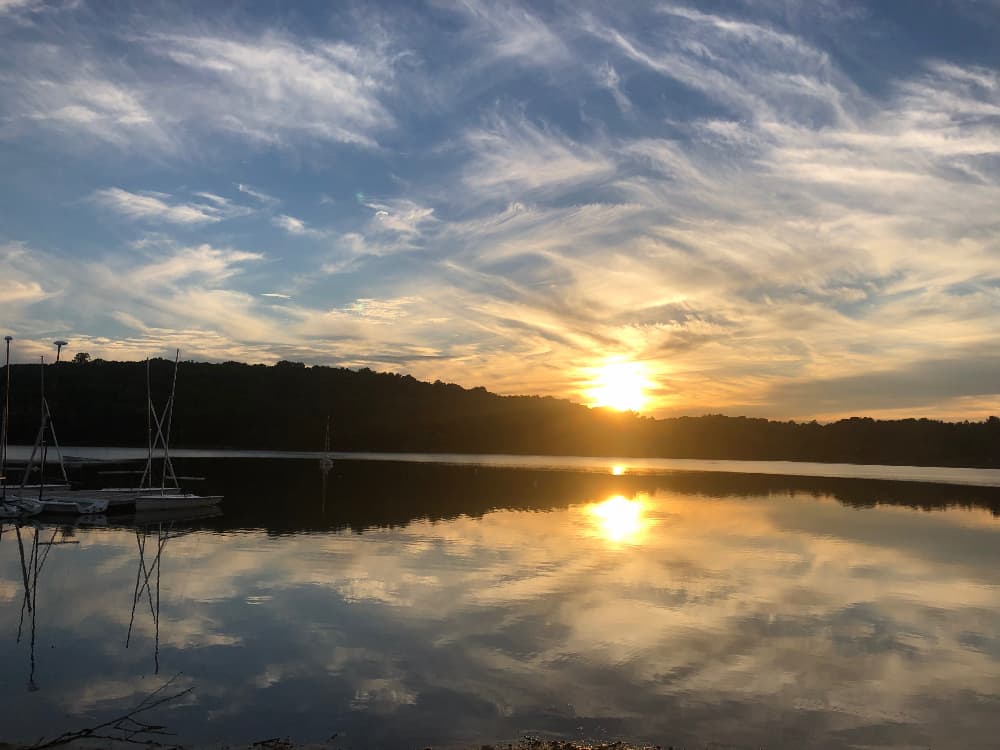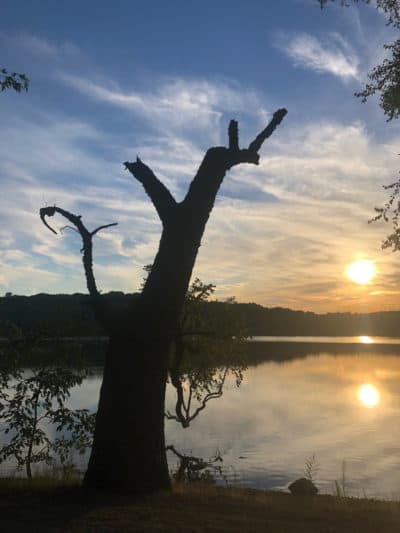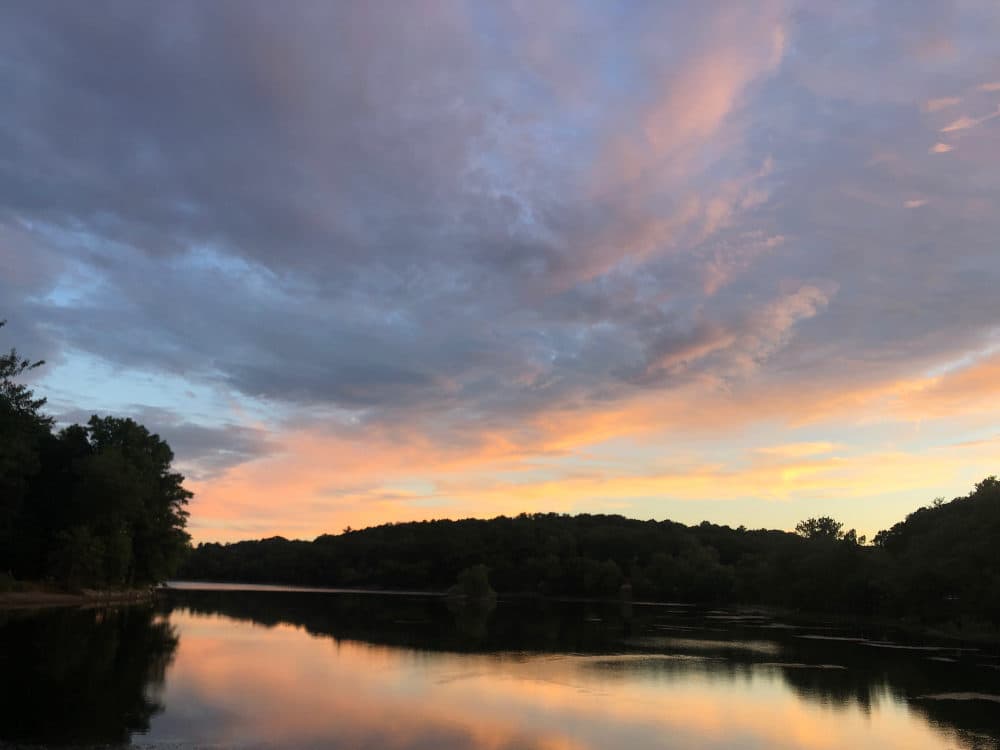
I've been working hard — on doing less
I come from a family of people who only operate in one gear, and that gear is Drive. My immigrant parents never stopped. When they weren’t working, they were exercising. When they weren’t exercising, they were gardening. When they weren’t gardening, they were entertaining. When they weren’t entertaining, they were volunteering. And when they traveled, it was also in Drive mode — constant activity from early morning to late at night.
In many ways, I’ve come to understand this way of living as an exercise in survival. My parents were Indian immigrants to Appalachia. They lived an extremely minortized existence, and had no safety net but for the one they were building through their constant movement.
Through observation, I came to see rest as a privilege. It is not a concept I was raised with. Rest is not a state of being that I understood for a very long time. And so, for nearly two decades, I fashioned my life and my career after my parents — I worked. Incessantly. As a teacher in the Boston Public Schools, my to-do list was unending. There was always another lesson to plan, a paper to grade, a parent to contact. There were inequities to fight. Problems to solve. And I threw myself, and my body, into that work.
Most days, mine was the only car in the parking lot when I left the building; the same went for that of my partner, also a teacher. When we met for dinner in the evenings, we struggled to find energy — or even words — for one another, having exhausted most of our emotional resources on the young people in our school buildings. Most weekends included at least one day of work. On vacations, we forced ourselves to leave town for extended periods, convinced that if we stayed in Boston we would work. It took years and substantive effort for us to impose “no school Saturdays” in our house, to guarantee ourselves at least one day when we weren’t consumed by work.

For the first 15 years of my career, this was how I functioned: at full speed, just as my immigrant parents had. And then, around 2018, something started to shift. It began when the Boston Public Schools attempted to close my school for no apparent reason, requiring our school community to mobilize and fight to keep it open. It continued when the district decided to subdivide our green space away from our school for the purpose of building a fieldhouse, but did not meaningfully incorporate student or community feedback in their process. And it got even worse when we returned to school buildings in September 2020 to see that the only ventilation being provided by our school district was $19 box fans that didn’t even fit in many of the windows.
Whereas before I’d viewed challenges in my work as obstacles to be overcome, doors to kick down, puzzles to solve, I found myself less and less able to muster the energy for these fights. While I’d previously found tremendous joy in my job, I now found joy more ephemeral, more elusive. Instead of independent obstacles or disparate challenges, work now felt like a daily series of attempts to ram myself into a giant brick wall of inequity and ill logic — a wall that showed no signs of crumbling. And from somewhere within my body, this deep need to turn inwards came to the surface, demanded to be seen, couldn’t be silenced or deterred.
Advertisement
Then a friend recommended a book to me: “Wintering: The Power of Rest and Retreat in Difficult Times,” by Katherine May. Pre-pandemic Neema would not have read this book, and was in fact obtusely stubborn about reading books in this genre that Amazon categorizes as “Personal Transformation Self-Help.” But by early 2021, I was desperate for some insight, some alternate path that might lead me in a different direction — a direction where I didn’t feel like my body was going to fail me at any moment.
In “Wintering,” May writes about her own experience with crashing into the proverbial wall when a combination of illness and mental health and employment struggles in her family required her to stop and take stock. She writes, “Wintering is a season in the cold. It is a fallow period in life when you’re cut off from the world, feeling rejected, sidelined, blocked from progress, or cast into the role of an outsider… However it arrives, wintering is usually involuntary, lonely, and deeply painful.” And while my upbringing had taught me that these emotions were simply something to push through, or to work through, May argues the opposite: that in a period of wintering, the best thing we can do is winter. She writes, "Doing these deeply unfashionable things — slowing down, letting your spare time expand, getting enough sleep, resting — is a radical act now, but it is essential."
This idea — that slowing down, rather than pushing through — was the salve. It felt radical to me, and also like the only idea that didn't elicit an immediate rejection from my mind and body when I considered it.

This past year, I tried to take May to heart. I asked to work part-time, instead of full time. I went for walks at Jamaica Pond every morning before going in to work, even on the coldest days. Cold, May argues, works by “forcibly pulling our minds away from ruminating on the past or future, or tilling over an endless to-do-list. We had to tend to our bodies right there, right then, ever watchful that the cold did not encroach too far.” Cold forces us to exist in that moment, rather than barrel through it on high gear. So I slowed down. I rested. I let my spare time expand. I tried my hardest to keep my guilt — that feeling that I wasn’t doing enough — at bay.
But as the school year came to a close, and I considered what it would mean to return to full-time work, to the nonstop emotional energy that classroom teaching requires, my body made its presence known again. From somewhere inside came a full-throated “No,” reverberating in my ears, telling me that I’m not ready -- not willing, not yet -- to leave the habits I’ve learned during this wintering behind.
May writes, “We must emerge slowly from our wintering. We must test the air and be ready to shrink back into safety when blasted by unseasonal winds; we must gradually unfurl our new leaves.”
In one of the most difficult decisions I’ve ever had to make, I am not returning to the classroom this fall. I’ve chosen to pivot, for now, to the work of supporting classroom teachers in their practice. And more than that, to helping them find ways to slow down, to expand their spare time, to rest. To do this work in a way that doesn’t require wintering. Or to model that wintering is OK, if that is what their bodies require.
This segment aired on October 18, 2022.
